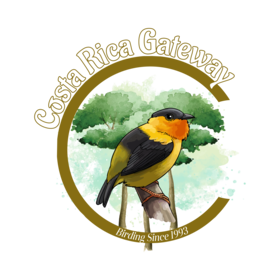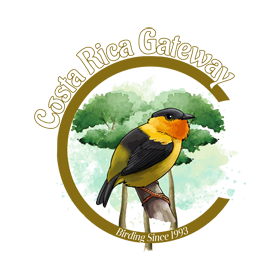Area: Costa Rica is a small country located between Nicaragua and Panama in Central America. It comprises 19,653 square miles or 50,900 km making it slightly smaller than West Virginia. The population of Costa Rica is approximately 6 million people.
Language: Spanish is the official language of Costa Rica. Many Costa Ricans that work in tourism, whether as a guide, receptionist, or waiter, typically speak at least some English and can help you with your inquiries.
Currency: The currency in Costa Rica is called colones. To compare with the US dollar you will need to check the current exchange rate as this fluctuates daily. US dollars are very widely accepted now throughout Costa Rica at a fair rate. Larger bills such as 50’s and 100’s are typically not accepted in stores so it is best to bring $20 bills or less. Credit cards are also widely accepted. ATM’s are becoming more popular but still not very reliable unless near a larger city or the airport. Be sure to have your credit card pin number available for cash advancements with ATM’s (only allowing for 4 digit pins). Personal pins of 6 numbers usually do not work. You will need your Passport to exchange US dollars at a bank and also when paying with Traveler’s Checks. Banks typically have long lines; time much better spent enjoying your vacation!
Electricity: For chargers, electrical outlets are the same as the USA although 3 prong outlets are not as prevalent. Voltage is also the same as the US, 110 Voltage AC at 60 Hertz.
Getting around in Taxis and Buses: Both are readily available, taxis are not cheap and they tend to drive aggressively. Common sense will go a long way in arranging your taxi. Be sure and confirm your price with the driver before you set off, writing the price down is a good idea. If traveling by taxi within a city make sure that the meter in the taxi is on so there is no question as to the price. Buses on the other hand are very inexpensive though they have their many inconveniences. Local buses stop frequently and often take 2 to 3 times longer to reach your destination compared to taxis. Direct buses are available in designated areas at set times, typically between the larger cities, and are quite comfortable to travel in. You will often need a taxi to get to and from these stations however. We recommend our private transportation as an alternative to taxis and buses. Safe drivers, personal service, and no surprises only add to your enjoyment of your holiday.
Roads and driving: The roads in Costa Rica can be quite an adventure. They are not in the best of shape, poorly marked and signposted, and have many potholes, narrow bridges, pedestrians, and stopped buses. The driving can be described as aggressive and confusing at times, rules are often bent if not completely ignored.
Airport departure tax: Depending on which airlines you are flying you may have to pay the airport departure tax of $29 US (or the equivalent in colones). Some credit cards can also be used for this payment. If you do need to pay this because your airline does not include it in your ticket price you will need to pay it before you check in at your airline counter. To find the airport tax collection counter, enter the departures section of the airport and turn to the right and at the far right end you will find it on your right, opposite the airline check-in counters. Be sure to first check with your airline to see if it is necessary to purchase this at all.
Health Issues: There are no vaccination requirements in order to enter Costa Rica although some are recommended. You can look these up on the internet although the websites I have visited tend to be overly dramatic and lacking in real numbers such as “How many cases of malaria were reported in Costa Rica in 2004?” etc. If consulting your doctor regarding Malaria and other tropical diseases, keep in mind that they have to cover themselves from any health issue pertaining to diseases you may encounter in Costa Rica. They will most likely look up the same information that you can to make their decisions. Also note that most doctors in the US, Canada, and the United Kingdom know very little about tropical diseases. Not to belittle them but I am often amazed at what they prescribe to their patients visiting Costa Rica.
Malaria is an extremely low risk disease here and not worth the side affects of the harsh medicine. Most foreigners living here find it perplexing that tourists take the anti-malarial medicine when visiting Costa Rica. The two areas where Malaria has occured in the past is near Los Chiles in the Central North on the border of Nicaragua and also an area in the Central Caribbean just inland from Limon. Neither of these areas is on any of our itineraries.
Dengue Fever is also spread by mosquitoes and sometimes occurs after floods in certain areas. Hepatitis A and B are listed on most websites though I have not heard of any one of our guests acquiring this on their visit to Costa Rica. A tetanus booster may be the most worthwhile vaccination you can get.
Having said that, you should know that Costa Rica has one of the highest standards of health care and hygiene in Latin America and the vast majority of people visiting Costa Rica do not experience any problems at all.
Chiggers: These are small mites that burrow into your skin and cause redness and itching. They are frequently encountered in the Southern US although residents of the UK may not be familiar with them. They are relatively harmless but can be a real nuisance and are abundant in the cattle pastures of Costa Rica, especially in the lowlands. Spraying your trousers, socks, shoes, and waste line with repellant such as Deep Woods Off containing Deet (N, N-Diethyl-meta-toluamide) is a good deterrent. Anti-itch cream is about all you can do for them once the redness and itching begins although I have found a swim in saltwater to calm these effects.
Safety and Theft: Common sense will go a long way in Costa Rica regarding safety and theft. Make sure that you lock your rooms when leaving, do not leave valuables exposed in your car while you go into the field, lock your rented car at all times, do not leave your camera and binoculars at the lunch table, keep an eye on your luggage in exposed areas such as at the airport, etc.
Many hotels provide a lockable safe in the room or at the front desk, usually at an added expense, where you can store valuables safely. It is probably wise to carry your important documents and money with you, even into the field.
Regarding your arrival to Costa Rica, if you will be taking a taxi from the airport to your hotel or lodge you should purchase your ticket at the Airport Taxi booth located after leaving customs and before entering the awaiting, sectioned off crowd. Their taxis are orange and are safe, reliable, and with competitive prices. There will no doubt be independent taxi drivers once you enter the crowd who will try to secure a fare from you but this is not always a good idea even if it does save you a buck or two. A good rule to follow is to not hire a taxi driver who is pushy and in a hurry to get your fare.
While in the field, remember that though rarely encountered there are poisonous snakes, not to mention the more numerous ants, wasps, and the like. Do not walk in sandals into the forest or secondary growth, especially at night, and take a flashlight along at night if you cannot see where you are stepping.
Water: Most of the lodges that we recommend have safe tap water you can drink such as Rancho Naturalista and Savegre Mountain Lodge. If unsure, just ask at the reception of the lodge upon arrival and they will tell you if it is safe to drink. Bottled water is readily available at the lodges and in stores throughout Costa Rica. Salads are considered safe to eat in all of our recommended lodges but should be avoided in local roadside restaurants to be on the safe side no matter how clean the restaurant looks. Giardia is the most often encountered intestinal parasite. The local pharmacy, (farmacia), can supply you with the necessary medicine if you explain your symptoms.



